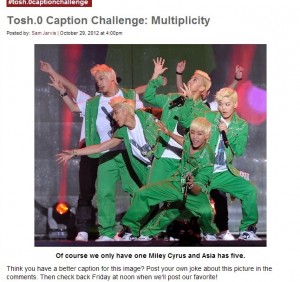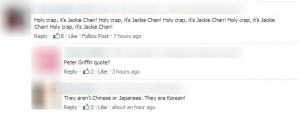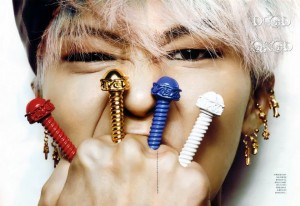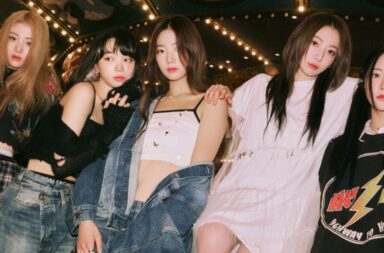Where are all the white tears flowing this time of the year? At the American Music Awards, apparently. On the 18th of November, the ceremony took place in Los Angeles, and amid the plethora of musicians invited to perform, Psy ended the gala together with none other than MC Hammer. The result was as amazing as having these two names in the same sentence.
But what proved more interesting was this commentary from Gil Asakawa of Nikkeiview, who linked the performance to the ’92 Los Angeles riots, where the Korean-American community responded to protesters. Now, after 20 years, you have MC Hammer — a singer who was active during those years who was not very keen on being silenced — and Psy on the same stage, closing the ceremony for a national event. Just how great is that?
[youtube http://www.youtube.com/watch?v=WOyo7JD7hjo&w=600&h=360]
Well, it obviously depends on whom you’re asking. Pre-show, many nay-saying spectators made their rage no secret and suggested that Psy shouldn’t be able to perform on the show because he isn’t a US citizen. Obviously, as many have noticed, they hadn’t taken into consideration Justin Bieber (Canadian) and The Wanted (British/Irish), and a couple of other nominees on the roster weren’t born in the US. But there is one thing that makes Psy quite different than The Wanted and Justin Bieber in terms of their “American-ness:” he’s not white. Psy is an Asian dude who sings — oh, the horror! — in an Asian language. But most of all, the uproar against Psy singing at the AMAs seems like a hidden wish to silence the Asian minority and put it in a corner where people are being laughed at without a chance of calling out the racists. Whether he likes it or not, Psy owes his success to Asian stereotypes, and his performance at a major American music awards ceremony is ironic in itself, retorting a disadvantage to his favor.
But the racism that goes against citizens or non-citizens of Asian descent is taken very lightly and even trivialized. Asians are a caricature, strangers Americans can’t relate to. What would they be doing at the AMA? No wonder why the “Go back to Asia” comments were aplenty; after all, Hollywood specializes in ignoring the APA community as a whole. Need an actor for Dragonball? Just make sure the main character isn’t Asian, otherwise people might not empathize with him. You need to make a movie about samurais? Ask Tom Cruise, because god forbid, you don’t want to have an actual Asian talking about an Asian culture. How about reincarnated characters? Well, they’ll just have the same actors in yellowface playing an Asian character. Never mind how many actors of Asian descent Cloud Atlas could have employed and how this would have helped the narrative of the movie. But when you have some make-up and “American” characters people can actually understand, why bother?


 According to Hollywood, Asians need to be kept at a distance and in a place where their culture becomes acceptable only when a white person approaches (and, oftentimes, appropriates) it. Directors cast movie protagonists with actors they see as the “public target,” or the standard human being they encounter.
According to Hollywood, Asians need to be kept at a distance and in a place where their culture becomes acceptable only when a white person approaches (and, oftentimes, appropriates) it. Directors cast movie protagonists with actors they see as the “public target,” or the standard human being they encounter.
It’s easy to detect what the definition of “normal” is: a white, straight, able-bodied, cis male. By featuring other races or ethnicities, other genders/people with different sexual orientations, and other disabilities, one would be straying away from the default configuration. The average viewer is able to observe this in the way roles are handled in cinematography: the main character in most situations is the aforementioned combination of traits and if not, they surely need one to get what they want.
This is made none more obvious than the case of Tosh.0. A while back, the site published a photo of B.A.P. sporting blonde hair and wearing the same suits, with this “joke” as a caption: “Of course we have one Miley Cyrus and Asia has five.” The photo was taken down after K-pop fans unleashed their rage, and some of them even called out the racists whose comments reinforced the same old stereotypes, to put it lightly. As K-pop fans, this is the stuff that makes us cringe the most. But here’s a little secret: K-pop fandom isn’t impervious to this kind of behavior, either.
How many times have the lines, “Koreans all look the same”, or “This is the Korean version of X?” popped up in conversation amongst K-pop fans? The mentality lingering behind this prescribes that while originality is valued, celebrities need follow a preexisting standard while making their mark in the music industry. Some audiences then proceed to characterize one personality against “the original entity”. I’ve heard Hyorin and Ailee being compared to Beyoncé. Kim Wan-sun is apparently the Korean Michael Jackson, and After School are the Korean Pussycat Dolls. DBSK are the Korean Backstreet Boys, while Kumi Koda has been dubbed as a plethora of things — the Japanese Shakira, Beyoncé, Christina Aguilera or Madonna. Much like Kumi Koda, Ayumi Hamasaki has taken to receiving similar “honorific” titles. Why are there so many comparisons when we’re talking about completely different artists with incredibly different styles and personalities? Seems to me like originality has been bitten in the butt. It’s just a failure of international fans to encounter another race and take its individuals as human beings with distinct personalities, without always having to draw comparisons between them and people of “their kind/another kind”.
As Korean celebrities become increasingly fetishized, fans find new depths in their interactions, reactions and associations with this genre of entertainment and pop culture. Of course, we all have an interest in South Korea (just look at the name of this site!), but there is no reason in this world to actually believe that a man/woman defines the epitome because of his nationality, no matter how advantageous a pro/con list for one or the another appears to be. Fans seem to indulge in the fantasy that if they’re listening to Korean music, it’s impossible for them to be racist towards Korean people.
 Moreover, when scandals take place — like in cases of “blackface”, and stars (like G-Dragon) getting high — onlookers are often quick to justify or launch accusations, without first attempting to understand the cultural frame these scandals have taken place in. It’s not criticisms of the mentalities behind these actions that stick out — I find this to be a constructive cultural exchange — but rather the fact that people don’t exactly call out others for overreactions, or for simply misunderstanding the matter/s that is bothersome. In these cases, it’s not the actions or reactions that come under scrutiny, but how different the respective event is from their normality. If weed’s not a problem in many of these fans’ countries, then why should it be in South Korea? If some nations have engaged in an on-going battle against racism, why is South Korea still not accepting minorities? They don’t analyze the core of the problem, but just assume one size fits all, and that the nations they belong to offer solutions to everything. South Korea comes to be at the receiving end of commentary from an audience that probably couldn’t care to understand its history, culture and even political environment.
Moreover, when scandals take place — like in cases of “blackface”, and stars (like G-Dragon) getting high — onlookers are often quick to justify or launch accusations, without first attempting to understand the cultural frame these scandals have taken place in. It’s not criticisms of the mentalities behind these actions that stick out — I find this to be a constructive cultural exchange — but rather the fact that people don’t exactly call out others for overreactions, or for simply misunderstanding the matter/s that is bothersome. In these cases, it’s not the actions or reactions that come under scrutiny, but how different the respective event is from their normality. If weed’s not a problem in many of these fans’ countries, then why should it be in South Korea? If some nations have engaged in an on-going battle against racism, why is South Korea still not accepting minorities? They don’t analyze the core of the problem, but just assume one size fits all, and that the nations they belong to offer solutions to everything. South Korea comes to be at the receiving end of commentary from an audience that probably couldn’t care to understand its history, culture and even political environment.
Now going back to Psy and the intolerance he faces that is dissimilar to the reactions received by other foreigners at the same awards show — this occurrence highlights how a vast viewership perceives Asians in their own culture. Despite his track record for the momentous year so far, there weren’t obvious signs that Psy would come to grace the annual event, and especially one that vises through its name, the American public. Specifically talking out about the the naysayers, the disappointing conclusion from this is that Psy was probably taken by most to be a laughing stock, a negligible portion of entertainment. He was rather an entity creeping up among them, with star substance deemed to be insufficient by a demographic of people. And well, this lot got infuriated when Psy begged to differ.
While I calm my word vomit, I’d like to turn the discussion to our readers — what’s your take on this? What are your thoughts on the overall reactions Asian communities receive when one of their members goes under the spotlight?
(Nikkei View, joeyzolanski, Tosh.0, cesolondriz)


